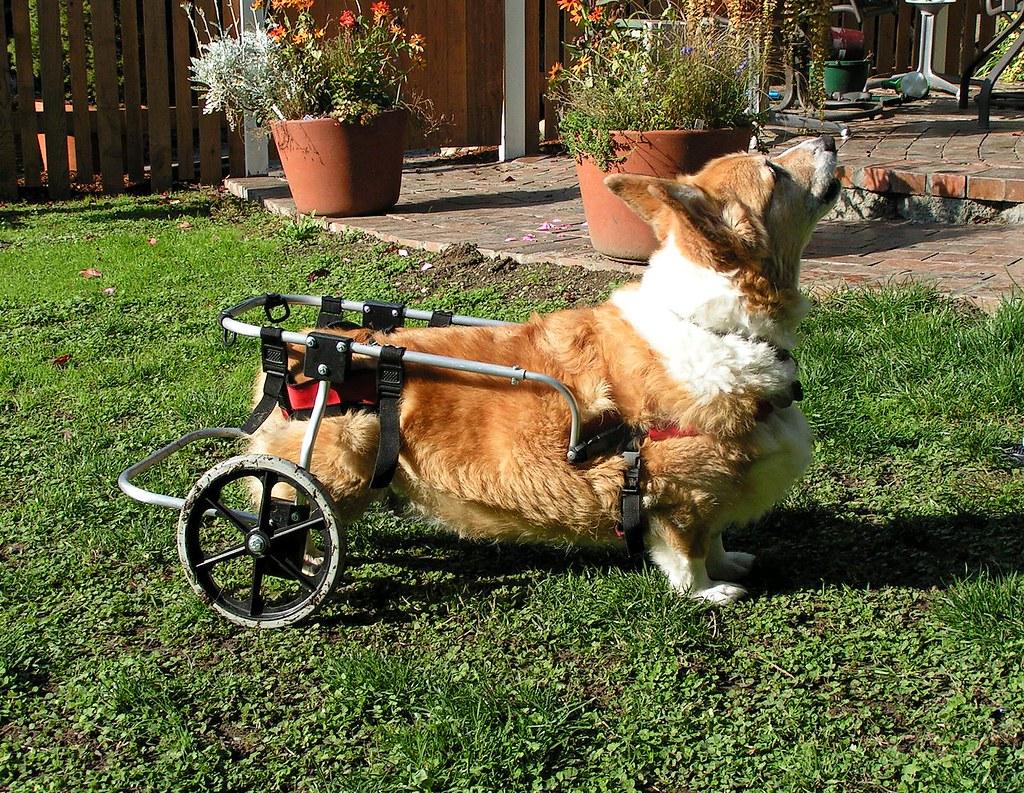4 Common Health Problems That Corgi Lovers Need To Know About

With short legs, long ears and a thick double coat, Corgis are effortlessly one of the most adorable dog breeds. With the perfect combination of affectionate and bossy personality traits, they make it impossible for us to not be in complete awe of them. However, notwithstanding their generally fit and healthy structure, Corgis suffer from a few unique health problems that Corgi lovers should be aware of. Here is a list of the four most common health issues that they face.
Hip Dysplasia

A dog’s quality of life can be severely impacted by this debilitating illness. Hip dysplasia is one of the most common health problems that Corgis have. Hip dysplasia is a skeletal disorder in which the ball and socket of the hip joints are misaligned. As a result, when the dogs with the disease run, the ball and socket rub and grind instead of moving smoothly. This is a chronic condition, which means it gets worse over time. However, proper disease education and responsible ownership at the appropriate time will keep the dog from contracting the disease.
Causes:
- Hip Dysplasia is hereditary.
- Excessive growth rate
- Obesity and lack of exercise or too much exercise
Symptoms:
- Limping
- Decreased range of motion
- Difficulty standing up, climbing stairs or jumping
- Stiffness
- Loss of thigh muscle mass
Treatment:
There is a wide range of options that can cure this condition. If your dog’s condition is not that severe, then a few lifestyle changes might cure the disease, but in more serious conditions, your dog might require surgical treatment.
- Weight reduction to take stress off of the hips
- Physical therapy or alternative therapy like acupuncture
- Restrictions on exercise and strict diet
- Anti-inflammatory drugs
- Joint supplements
- Surgeries like hip replacement
Progressive Retinal Atrophy

The wasting of a body part, whether partial or total, is referred to as atrophy. Progressive retinal atrophy (PRA) is a group of degenerative diseases that affect these photoreceptor cells. The cells in this disease deteriorate over time, ultimately causing blindness in the dog. In dogs, retinal dysplasia and PRA are the two most common types of PRA. The former is an early-onset inherited form, while the latter is a late-onset inherited form. And Corgis will grow PRA, according to PetMD. While it is not a physically debilitating illness, losing one’s sight can be very distressing.
Causes:
- Abnormal development of the photoreceptor cells of the retina
- It can be inherited
Symptoms:
- The first sign of the disease usually is a progressive loss of night vision affecting both eyes
- Day vision degeneration occurs over a while and finally results in total blindness
- Eyes begin to have a cloudy look
- Your dog may bump into walls or unfamiliar objections
- Reluctance to go down the stairs or jump down steps
- Decreased colour of the pigment of the eyes
- Cataracts form on the retina
- Dilated pupils in both eyes
Treatment:
There is no known treatment yet that can effectively cure PRA, but if you notice that your dog is exhibiting any of the symptoms mentioned above, you should immediately take them to the vet. Recent developments in test treatments using antioxidants have slowed the rate of the disease in the retina in some dogs, although the tests are not conclusive at this time. One way that you can help ease your dog’s daily life is by keeping your dog’s environment constant so that they can easily adapt to that.
Degenerative Myelopathy

Corgis are also prone to a serious disease called degenerative myelopathy. Degenerative myelopathy (DM) is a spinal cord condition that causes progressive weakness and paralysis in the hind limbs. It is also known as Chronic Degenerative Radiculomyelopathy (CDRM). Between the ages of 8 and 14, the disease starts insidiously. This disease affects not just the spinal cord but also the entire nervous system and the brain stem. Seeing your Corgi go through the stages of this disease can be very disturbing. Taking your pet to the veterinarian on a regular basis will help prevent this.
Causes:
- Degeneration of the white matter of the spinal cord
- Genetic mutation
Symptoms:
- Muscle atrophy
- Posture issues
- Weakness
- Swaying in the hind end when standing
- Inability to walk or stand
- Partial or complete limb paralysis
- Decreased muscle mass
- Wobbling
Treatment:
Degenerative Myelopathy, like most other disorders in dogs, has no definitive or effective cure. However, in a dog that has been diagnosed with this awful disease, treating the symptoms as they appear will help maintain a healthy quality of life.
Von Willebrand’s Disease
Von Willebrand’s Disease is the last disease on this list that often affects Corgis. Von Willebrand Disease (VWD) is the most common hereditary hemostasis condition in both humans and dogs. It’s caused by a lack of or abnormality in Von Willebrand Factor (VWF), a protein that helps platelets (clotting blood cells) bind together and form clots to close damaged blood vessels. After an accident, this disease can cause heavy bleeding, leading to dangerous blood loss and anaemia. However, Corgi or other dog owners should be aware that Von Willebrand disease is a separate condition from haemophilia and that their dog should be treated accordingly.
Causes:
- Lack of von Willebrand factor protein
- Genetic
Symptoms:
- Bleeding from mucous membranes
- Prolonged bleeding after surgery or trauma
- Excessive bleeding from a minor abrasion
- Bleeding of gums
- Pain
- Nausea
- Weakness
Treatment:
While this can be terrifying for Corgi’s human family, the prognosis for dogs with von Willebrand’s is usually good. However, there is no drug, vitamin, hormone, or dietary modification that can induce the production of vWF. If the dog has only mild or moderate von Willebrand’s, it will need minimal treatment. In an emergency, transfusion of blood or fresh frozen plasma may stabilise a bleeding patient.











